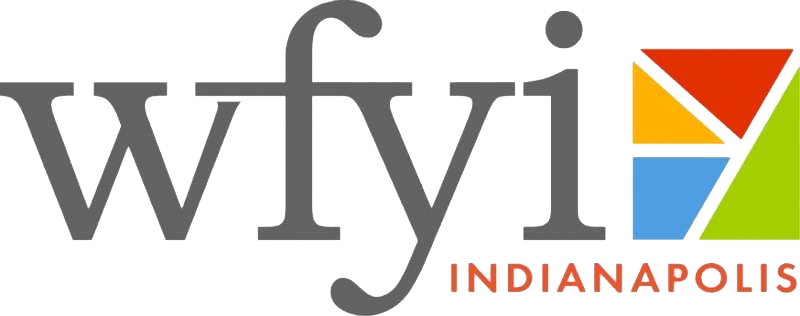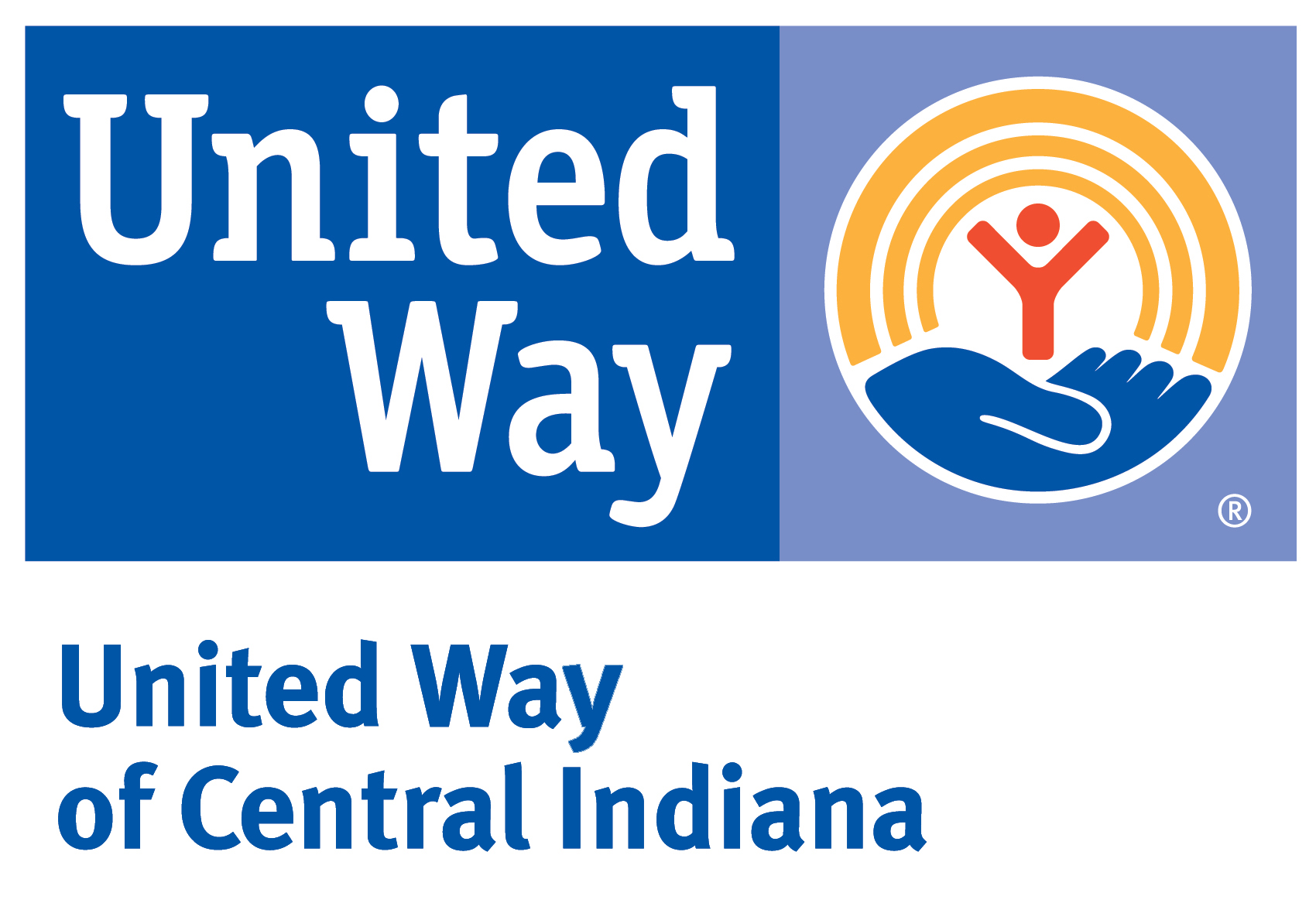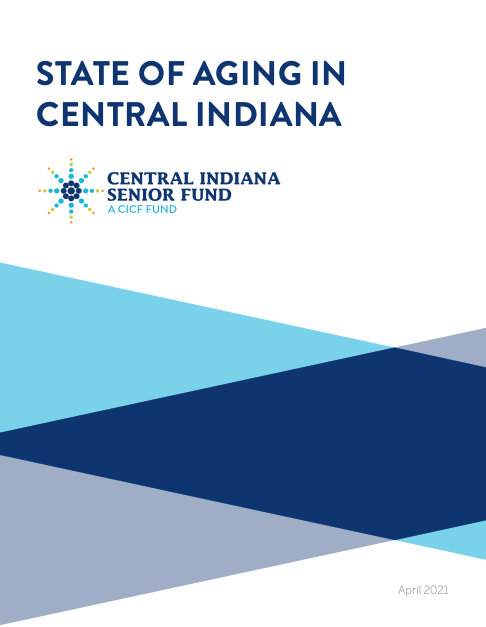Equity in Aging
SAVI Talks - April 22, 2021Older adults face inequities from the actions of individuals and organizations, and at institutional and systemic levels. These inequities are based on, but not limited to, differences in age, race, ethnicity, gender identity, and socioeconomic status and class.
On Thursday, April 22, The Polis Center, SAVI, WFYI, the IU Public Policy Institute, the IU Center on Aging Research, and the Central Indiana Senior Fund, a fund of the Central Indiana Community Foundation, will co-host the SAVI Talks: Equity and Aging webinar.
This event will look at existing financial stability inequities among Central Indiana’s older adult population and consider the impact of the COVID-19 pandemic. Presenters from The Polis Center and IU Public Policy Institute’s Center for Research on Inclusion and Social Policy will present the findings using a social-ecological model as a framework for interpreting the implications of the available data. Our panel noted below, representing social service agencies and the community, will discuss how these inequities are experienced by older adults and consider needed community action. Brittani Howell, Community Engagement Specialist, WFYI Side Effects Media, will moderate the discussion.
The findings draw from the State of Aging in Central Indiana Report, which was developed to serve as the premiere source of data related to growing older in Central Indiana. The report was developed by the Central Indiana Senior Fund in collaboration with The Polis Center at IUPUI, IU Public Policy Institute, and IU Center for Aging Research and will be published April 15.
Older Adults Experiencing Poverty
Articles and Story Maps
Explore other research and interactive content we have developed around equity.
Indiana Geographic Information Council’s (IGIC) Special Achievement in GIS Award
The Polis Center won the Indiana Geographic Information Council’s (IGIC) Special Achievement in GIS Award for the SAVI Coronavirus Data Hub. IGIC President Kari Hicks says, “Given the impact of COVID-19, using GIS to create a dashboard to help inform...
Health and Economic Impact of COVID-19 on Neighborhoods
In this report, we identify the areas in Indianapolis most affected by COVID-19, particularly those already disproportionately affected by poverty; define some of the challenges families in these areas are facing; and explore ways inequity plays a role in the risk,...
Indy Evictions May Reach 34,000 or More in 2020
An increase in unemployment claims could drive the eviction rate from 7 percent in 2016 to 20 percent in 2020, and informal evictions may be twice that.
Police Used Force on 1.3 Percent of Black Residents Since 2015
Police used force over 1,600 times in 2019. Officers use force on black residents at a rate 2.6 times higher than white residents.
Socioeconomic factors explain why some New York ZIP codes were hit hardest by COVID-19
By comparing New York’s COVID-19 test results with demographic and socioeconomic factors by ZIP code, we found that low education levels, crowded housing, and a lack of health insurance are some of the strongest predictors of high COVID-19 positivity rates.
The Inequalities Behind COVID-19 Disparities for African Americans in Indianapolis
COVID-19 positivity rate is 1.8 times higher for blacks than for whites. We explore how systemic inequities put many black individuals at higher risk for getting the virus, having a serious case, and suffering from the economic impacts compared to white residents.
Three Ways to Visualize COVID-19 Race and Gender Disparities
In Indiana, black individuals are 2.4 times more likely to test positive than whites. We look at three different ways to visualize COVID-19 disparities like this.
How long does it take to get to a grocery in each neighborhood?
This past November, we released the report Getting Groceries: Food Access Across Groups, Neighborhoods, and Time. Expanding on this report, we created an interactive map to display food access information for each block group in Marion County. Click on a block group...
Getting Groceries
When people do not have access to healthy food, this can impact their diet, their health, and their quality of life. Food deserts are a way of defining communities that lack healthy food access. These are neighborhoods with both low healthy food access and low income....
After Expansion, Pacers Bikershare Offers Access to 34 Miles of Bike Trails
With the addition of 29 new bikeshare stations, Pacers Bikeshare now makes trips possible on one third of Indy’s bike trail system.
Contributors
Central Indiana Senior Fund Advisory Board
H. Ken Bennett, Center for At-Risk Elders
C. Andrew Class, M.D., St. Vincent Stress Center
Susan Guyett, Retired
Kim Jacobs, Television Producer and Writer
James Leich, Retired President, LeadingAge Indiana
Jane Malkoff, Scout Advocacy
Ellen Miller, UIndy Center for Aging & Community
Keesha Dixon, Asante Art Institute of Indianapolis
Candace Preston, Veterans Health Administration
Heather Hershberger, Consultant
State of Aging in Central Indiana Report Advisory Committee
Gerald Ardis, Flanner House
Duane Etienne, President Emeritus, CICOA Aging & In-Home Solutions
Pat Healey, Ascension Health
Kathryn McEntire, RCI
Ellen Miller, UIndy Center for Agency and Community
Michelle Niemier, Center for At-Risk Elders
Todd Wagoner, Community Health Network
Carolyn Watts, Retired, Indiana Department of Child Services
Ruth Williams, Edna Martin Christian Center
Dustin Ziegler, CICOA Aging & In-Home Solutions
Produced by The Polis Center at IUPUI and SAVI in partnership with the IU Center for Aging Research, and the IU Public Policy Institute’s Center for Research on Inclusion and Social Policy.
IU Center for Aging Research (IUCAR), Regenstrief Institute
Nicole Keith, Research Scientist
Steven Counsell, Research Scientist
Dan Clark, Research Scientist
Center for Research on Inclusion and Social Policy (CRISP)
Breanca Merritt, Chief Health Equity and ADA Officer, Indiana Family and Social Services Administration (Founding Director of the Center for Research on Inclusion and Social Policy)
Kelsie Stringham-Marquis, Research Coordinator, IU Public Policy Institute (PPI)
Katie Rukes, Program Analyst, PPI
The Polis Center at IUPUI (Polis)
Karen F Comer, Director, Collaborative Research
Rebecca Nannery, Senior Research Analyst
Jeramy Townsley, Faculty Research Analyst
Unai Miguel Andres, Research Analyst
Jay Colbert, Data Manager
Matt Nowlin, User Experience Designer
LaShawnda Crowe Storm, Community Organizer
Sharon Kandris, Associate Director
Research Support
Amnah Anwar, Research Assistant, Polis
Mackenzie Dafferner, Research Assistant, IUCAR
Mandy Dhillon, Research Assistant, Polis
Destiny Faceson, Research Assistant, CRISP
Weston Jones, Research Assistant, CRISP
Patrick Lai, Graduate Research Assistant, Polis
Rubi Mallers, Graduate Research Assistant, PPI
Emma Morone, Graduate Intern, Polis
Melissa Sherman, Graduate Research Assistant, IUCAR
Event Partners




SAVI Talks Presenters
Rebecca Nannery
Data Analyst
Polis Center
Matt Nowlin
Data Analyst
Polis Center
Erik Stiner
Stanford University
Panelists
Patrice Duckett
Exec. Director
Fay Biccard Glick, Crooked Creek Neighborhood Center
Allison Luthe
Exec. Director
MLK Community Center
Amy Nelson
Exec Director
Fair Housing Center of Central Indiana
Pamela Ross
VP of Opportunity, Equity & Inclusion
Central Indiana Community Foundation
Moderator
Jill Sheridan
Health & Science Reporter
Indiana Public Broadcasting, WFYI

